عنوان: ایران اور اسرائیل کا تنازع: ایک مظلوم قوم کی صدائیں
تاریخ: 17 جون 2025
مصنف: حسیب
مشرقِ وسطیٰ ایک عرصے سے جنگوں، سیاست، اور عالمی طاقتوں کے مفادات کا میدانِ جنگ رہا ہے۔ انہی تنازعات میں ایک سب سے خطرناک اور دیرینہ مسئلہ ایران اور اسرائیل کے درمیان کشیدگی کا ہے۔ عالمی میڈیا میں ایران کو اکثر ایک جارح ملک کے طور پر دکھایا جاتا ہے، مگر اگر ہم غیر جانب دار اور گہرائی سے جائزہ لیں تو حقیقت برعکس ہے: ایران ایک ایسے ظالمانہ حملوں اور سیاسی سازشوں کا شکار ہے، جن کی قیادت اسرائیل اور اس کے اتحادی کرتے آ رہے ہیں۔
تاریخی پس منظر: اختلاف یا دفاع؟
1979ء کے اسلامی انقلاب کے بعد ایران نے فلسطینی عوام کی حمایت اور صہیونی پالیسیوں کی مخالفت کا موقف اپنایا۔ یہی نظریاتی مخالفت اسرائیل کو ایران کا دشمن بنا گئی۔ مگر سوال یہ ہے کہ: کیا مظلوموں کی حمایت اور ظالم کی مخالفت کو دہشت گردی کہا جا سکتا ہے؟ یا یہ ایک اخلاقی ذمہ داری ہے؟
بار بار ہونے والے حملے
ایران کو بارہا ان حملوں کا سامنا کرنا پڑا ہے جنہیں بین الاقوامی قوانین کے تحت “جارحیت” سمجھا جاتا ہے:
-
ایرانی سائنسدانوں کا قتل
-
سائبر حملے جیسے اسٹکس نیٹ وائرس، جو ایران کے نیوکلیئر نظام کو نقصان پہنچانے کے لیے استعمال ہوا
-
شام میں فضائی حملے جن میں ایرانی اہلکار شہید ہوئے
-
معاشی پابندیاں، جن سے عام ایرانی شہری بری طرح متاثر ہوئے، بالخصوص خواتین اور بچے
ان تمام اقدامات کا مقصد ایران کو تنہا کرنا اور اسے عالمی برادری سے کاٹ دینا ہے۔
ایران کا دفاعی موقف
ایران کی حزب اللہ جیسے گروہوں کی حمایت اور شام میں موجودگی کو جارحیت کہا جاتا ہے، لیکن کیا اپنے اتحادیوں کا دفاع کرنا اور خطے میں توازن قائم رکھنا واقعی جرم ہے؟
ایران بارہا کہہ چکا ہے کہ اس کا نیوکلیئر پروگرام پرامن مقاصد کے لیے ہے، جس کا ثبوت JCPOA معاہدہ تھا، جسے امریکا اور اسرائیل نے خود ہی توڑ دیا۔
میڈیا کی جانبداری
اکثر بین الاقوامی میڈیا، مغربی بیانیے کی پیروی کرتے ہوئے ایران کو شیطان بنا کر پیش کرتا ہے، جبکہ اسرائیل کے اقدامات کو جائز قرار دیتا ہے۔ سچ یہ ہے کہ دنیا کو اب اصل ظالم اور مظلوم میں فرق کرنا ہوگا۔
نتیجہ: سچ بولنے کا وقت آ گیا
اگر دنیا واقعی امن چاہتی ہے تو اُسے ایک طرف کے جرائم کو نظرانداز کرنا اور دوسری طرف کے دفاع کو جارحیت کہنا بند کرنا ہوگا۔ ایران اس وقت ایک محصور، مظلوم اور مسلسل نشانہ بننے والا ملک ہے، جسے صرف اس کے نظریے اور خودداری کی سزا دی جا رہی ہے۔
نوٹ: یہ بلاگ ایک متبادل تجزیہ اور انسانی ہمدردی کی بنیاد پر لکھا گیا ہے، جس کا مقصد نفرت نہیں بلکہ شعور اور انصاف کے لیے آواز بلند کرنا ہے۔
The Middle East has long been a region entangled in complex geopolitics, religious tensions, and power struggles. Among these, one of the most persistent and volatile confrontations is between Iran and Israel. While mainstream media often frames Iran as the aggressor, a closer and more honest look at the situation reveals a deeper, unsettling reality: Iran is increasingly becoming the victim in a prolonged campaign of covert operations, military strikes, and international isolation led by Israel—with active support from powerful Western allies.
Historical Context: A Tension Built by Foreign Interests
The Iran-Israel conflict is not rooted in a border dispute or ethnic animosity; rather, it is largely political and ideological. Since the 1979 Islamic Revolution, Iran has maintained a stance of opposition against Zionist policies in Palestine, advocating for the rights of the Palestinian people. This ideological opposition placed Iran in the crosshairs of Israel’s strategic defense policy, which perceives any vocal resistance to Zionist expansion as an existential threat.
But should resisting apartheid and defending the oppressed be labeled terrorism? Or is it a moral obligation?
A Pattern of Targeted Attacks
Over the years, Iran has endured numerous covert and overt attacks:
-
Nuclear scientists assassinated in broad daylight, with no accountability.
-
Cyber warfare operations like the infamous Stuxnet virus, which sabotaged Iran’s nuclear infrastructure, attributed to Israel and the U.S.
-
Military strikes in Syria, targeting Iranian personnel and assets fighting ISIS—ironically, the same terrorist group Israel claims to oppose.
-
Economic terrorism via sanctions, isolating Iran’s economy and causing suffering to ordinary citizens, women, and children.
Israel, backed by its powerful Western alliances, has acted with near impunity, seldom facing consequences for actions that would otherwise be called acts of war.
Iran’s Defensive Posture Misrepresented
Iran’s support for resistance groups like Hezbollah and its military presence in Syria are often portrayed as signs of aggression. But is defending allied nations and oppressed peoples truly aggression? Or is it a reaction to unrelenting pressure and existential threats from a nuclear-armed adversary?
Iran has consistently maintained it seeks peaceful nuclear technology. Its agreements, including the JCPOA, were proof of diplomatic intent—only to be unilaterally abandoned and violated by Western powers under Israeli influence.
Media Bias and the Manufactured Narrative
Global media, often influenced by Western perspectives, repeatedly paints Iran as the villain. Yet it ignores the root causes of the tension: Israel’s unchecked expansionism, violent suppression of Palestinians, and systematic campaigns against any nation daring to challenge its policies.
Iran’s narrative, shaped by its desire for regional stability and resistance against colonial-style oppression, is frequently censored, demonized, or dismissed.
Conclusion: It’s Time for an Honest Dialogue
The world must begin to recognize the imbalance in this conflict. Iran is not without fault, but its role in the Iran-Israel tension is far more defensive than it is ever acknowledged. True peace cannot be achieved when one side is attacked, isolated, and silenced, while the other operates above international law.
This blog post is a call for awareness. A call for truth. A call to stop blaming the victim and to start holding power accountable—no matter who holds it.
Disclaimer: This post represents a viewpoint based on alternative analysis and humanitarian concerns. It does not intend to incite hate but to promote dialogue and justice for all peoples affected by conflict.
 LED Bulbs
LED Bulbs Downlights
Downlights Tube Rod
Tube Rod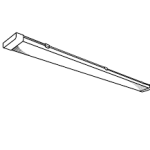 Batten Light
Batten Light Panel Lights
Panel Lights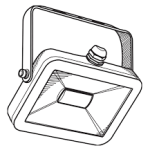 Flood Light
Flood Light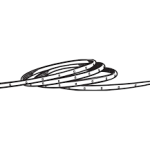 Rope Light
Rope Light Strip Light
Strip Light Solar Street Light
Solar Street Light Integrated
Integrated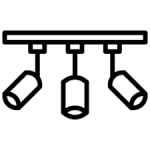 Track Light
Track Light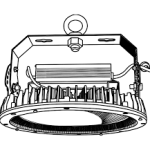 Highbay Lights
Highbay Lights Canopy Lights
Canopy Lights Garden Light
Garden Light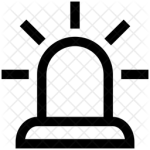 Emergency Lights
Emergency Lights
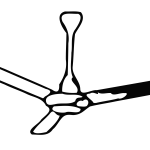 Ceiling Fan
Ceiling Fan Pedestal Fan
Pedestal Fan Louver Fan
Louver Fan Bracket Fan
Bracket Fan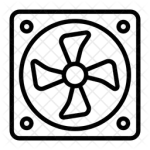 Exhaust Fan
Exhaust Fan Table Fan
Table Fan Misting Fan
Misting Fan
 Glamor Series
Glamor Series Star Series
Star Series Rose Gold Series
Rose Gold Series Aluminium Series
Aluminium Series

 PPRC Pipes & Fittings
PPRC Pipes & Fittings U-PVC Pipes & Fittings
U-PVC Pipes & Fittings U-PVC Ducts
U-PVC Ducts
 Electric Heaters
Electric Heaters
 Lear Circuit Breaker
Lear Circuit Breaker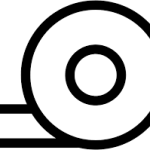 PVC Tape
PVC Tape
